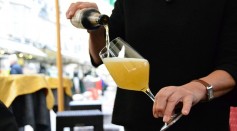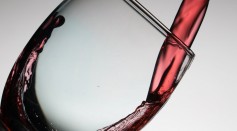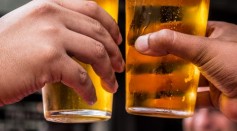alcohol drinking

Alcohol Tolerance Lowers As You Age: Why Older Adults Need To Drink More Responsibly

Alcohol Risks and Benefits: What Does Beer and Wine Do to the Body?

Giving Up Alcohol For A Month Has Lasting Benefits

If Your Face Turns Red After Drinking Alcohol, Stop Immediately

Reseach Says Ketamine May Help Treat Harmful Drinking Behavior
A Non-Addictive, Hangover-Free Synthetic Alcohol Soon to be Made Available
Moderate Alcohol Drinkers Might Have Higher Risk Of Losing Memory And Thinking Skills, Study Says
'Hangover Clinic' Opens In Australia
Despite Passing Out, Alcohol Still Leads to Sleep Disruption
People Who Work More, Drink More
Binge Drinking Hurts Your Immune System
Chatty Zebra Finches May Slur Their Speech When Drunk, But Then Again Who Doesn’t?
What Drives Monkeys to Drink—The Fruit-Filled Tale Of Why We Imbibe
CDC Asks What’s Worse—Occasional Binging or Full-Blown Alcoholism?
Most Popular

How Technology Is Changing the Real Estate Industry?

AI Revolution in Medical Education: Transforming How Healthcare Professionals Learn

Nikolay Karpenko Biography, Photo, Career, Accomplishments

Zombie Star Set to Light Up Night Sky: Blaze Star Could Erupt Soon






